Currently I’m researching for my World War One text thriller I plan to write shortly, and which will be first serialised here on Iconoblast. So I’m watching the fantastic Peaky Blinders – for at least the fourth time – and still admiring its brilliant writing. Stephen Knight is to be commended for his amazing exploration of Romany and gang culture in post-Great War Britain.
I don’t really care about many of the ‘errors’ detailed in Top 10 Times Peaky Blinders Got History Wrong, because they still ‘felt right’. I see some of these ‘errors’ as dramatic license and I certainly intend to apply similar license to the novel I’m planning. For example, I have at least six famous characters from the Great War gathered in one place. Although there is no record that such a legendary meeting occurred, it’s a perfectly feasible scenario. That said, I’m sure I’m going to be caught out by a history buff who will tell me it’s not possible because character A or B was in another country, or ill at the time.
But I did wince when Thomas Shelby said he had fought at Verdun, which was an exclusively French battle. And a reference to Shelby being a “clay kicker”, mining underneath the German positions, reminded me of Charley’s War, when my protagonist was also a clay kicker. My recollection is the clay kickers were specifically Cockneys, and had used a unique method of lying on their backs and kicking out the earth with their shovels. In this way they had dug their way through the London clay to build the London Underground. So it didn’t seem likely that Birmingham miners would ever be described as clay kickers.
I guess it all comes down to credibility. Does it seem convincing? If it does, who cares? But I did have trouble swallowing the wedding scene of Thomas and Grace at the start of Series Three.
Jeremiah Jesus, the Rastafarian street preacher from the first series is now performing the role of a High Anglican priest officiating over the wedding, and still wearing those magnificent dreads! I found myself asking just how was this achieved? Presumably Thomas pulled a lot of strings and made a lot of ‘donations’ (bribes) to the Anglican establishment. Money usually talks, but it’s never referenced – perhaps because it would draw too much attention to what I see as a weakness in the storyline. I would have to research such a scene and find a real-like basis before writing it. Grace’s snobbish, racist, military establishment relatives looked on with only mild horror. My personal experience of similar stuffed shirts at a wedding suggests they would have protested or even walked out. It has wonderful shock value, but I do wish the scene had been set up better, so it seemed more credible. That way we could enjoy it so much more.
How do you feel about historical accuracy in novels? I have a feeling accuracy matters more in a novel than in a TV drama, where the actors can provide the reality lacking in the script. I originally planned my novel back in 2018, but held off until now because I realised it needed at least a further six months to read and digest the relevant contemporary accounts. I was just as bad when I was researching Sláine and Charley’s War. I took forever researching both of them because I had to believe in what I was writing. Maybe the bottom line is: if it’s real to the writer, it will be real to the reader. What do you think?
Vampire Visuals
Now for some eye candy: Requiem Vampire Knight artist creator Olivier Ledroit has been busy illustrating the long-awaited Volume 12. Here’s a selection of his work, which he’s generously been sharing on his Facebook page.
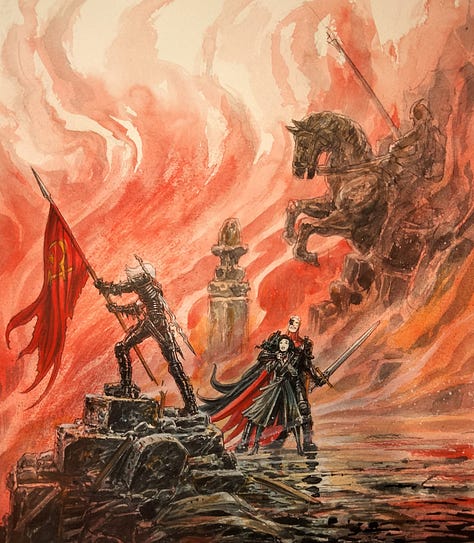
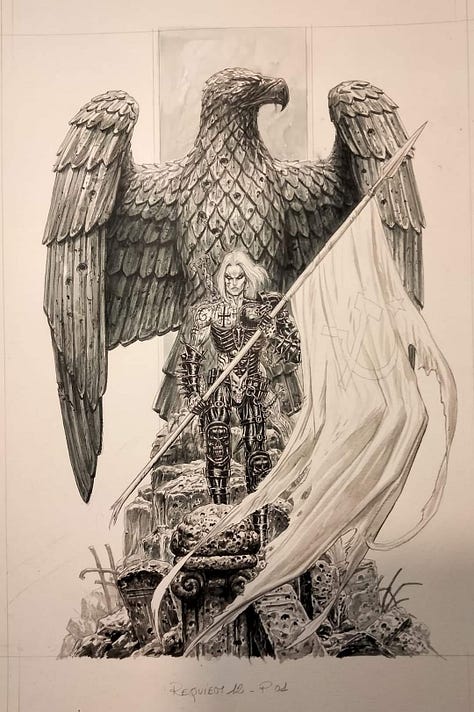
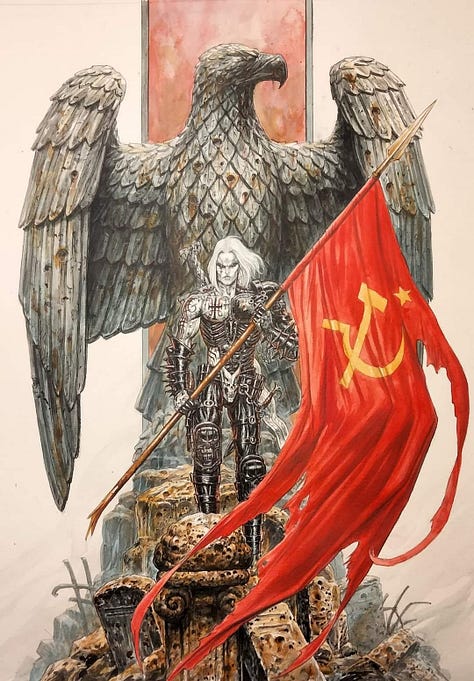
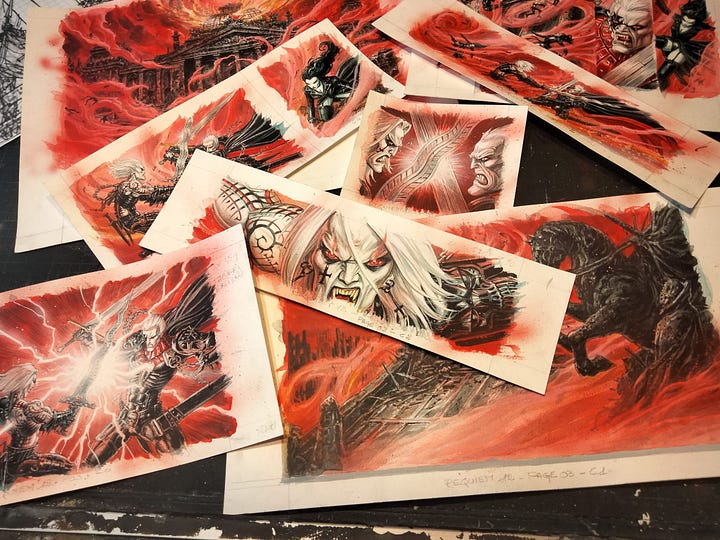
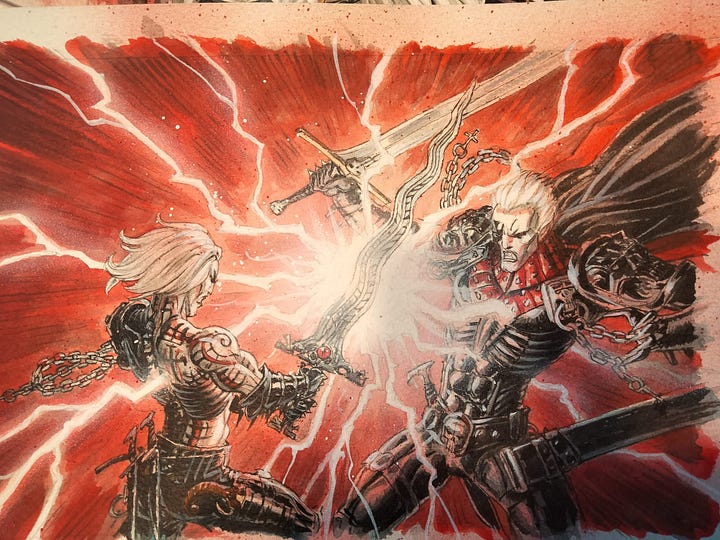
It’s especially interesting to see the artwork evolve from pencils to the fully painted panel, as seen on page 8, with Black Sabbat’s wonderfully Gothic, flying-horse drawn carriage.
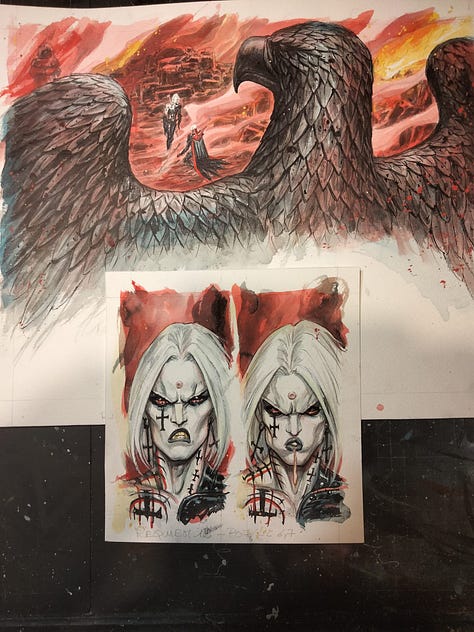
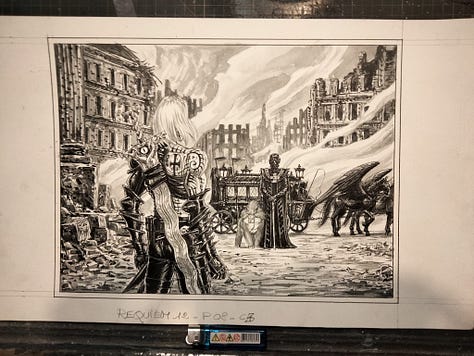
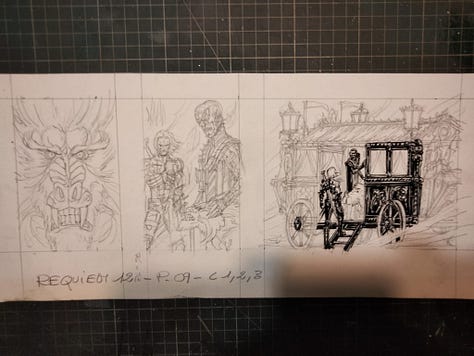
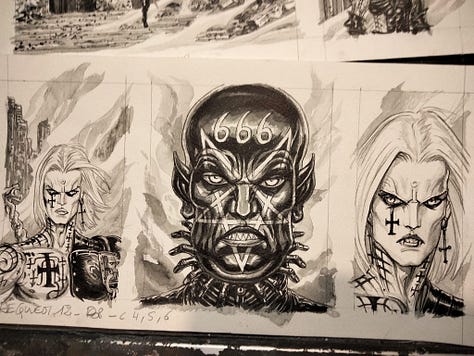
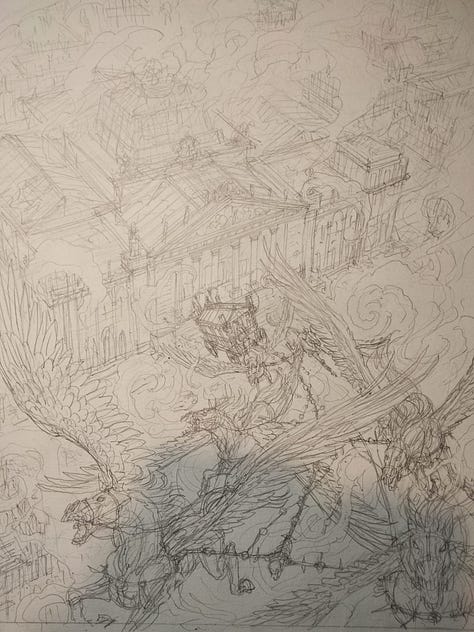
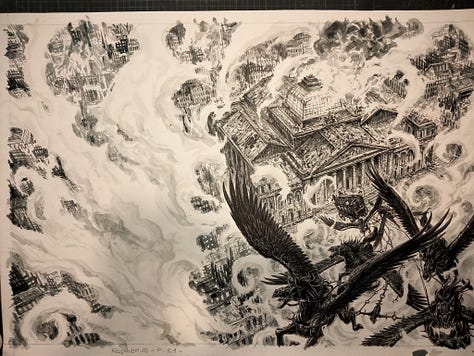
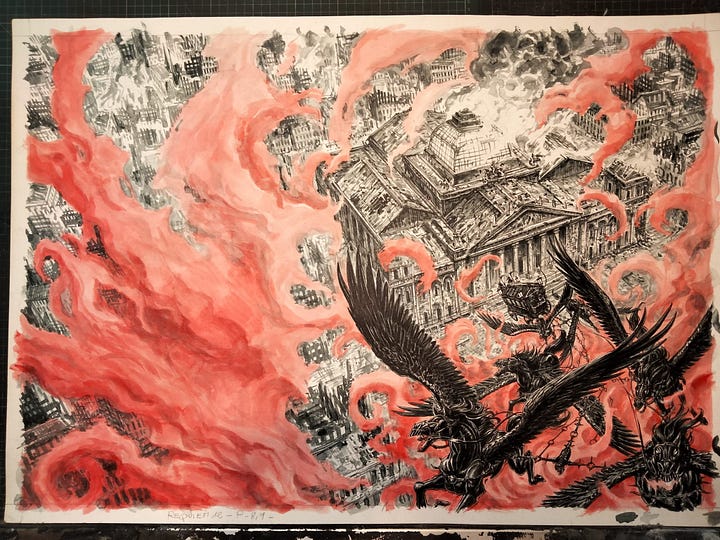
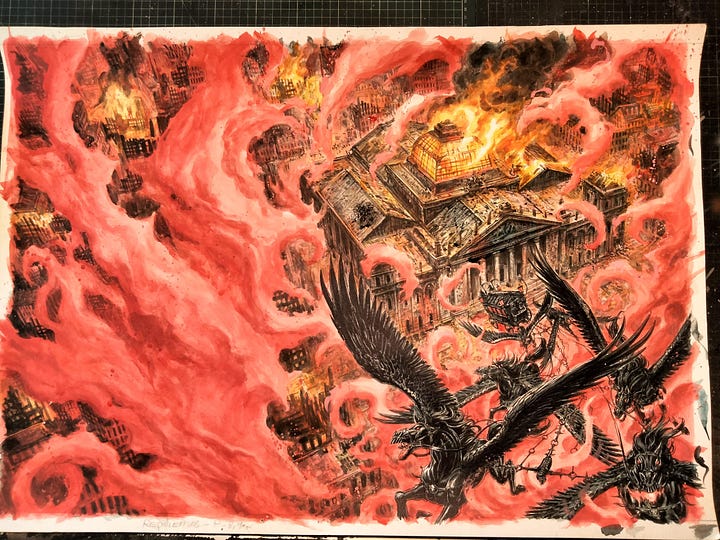




I agree that telling a good story sometimes means taking some dramatic licence, after all its not a documentary. But the wedding example seems to me like going too far -- pretending people 100 years ago were much less racist than they really were seems like whitewashing history a bit too much. (I haven't seen that episode though so take my opinion with a pinch of salt!)
Greetings, Pat - I love what you're doing here on SubStack - long may you continue.
As for verisimilitude in fiction - it's tricky. It can, as you say, throw you out of a film or book and put you back in your seat - especially if it's something obvious or lazy.
But there is a limit - if you're reading a text book, you expect it to nail its facts, but if you're reading fiction - you want to be entertained first.
I know someone who walked out of a film because they were using the wrong rifles - apparently the ones they were using were issued ten years after the story was set. How many people would notice that, and how many of those would really care? Some people are just looking for something to be upset about.
I'm stumbling myopically through my first novel - which started life as an unproduced film script. In the process of turning it into a novel, I have had to address literally hundreds of anomalies that didn't come up in the writing of the screenplay. My own fault for seting my first book in The Blitz - a period which has been written about in intimidating depth.
So much so, that I have decided my book is set in an alternate universe. That will be my get out of jail card when people start pointing out my no-doubt innumerable errors. "Yes, that's true in our world - but not in my characters' world!" :)
Cheers: John.